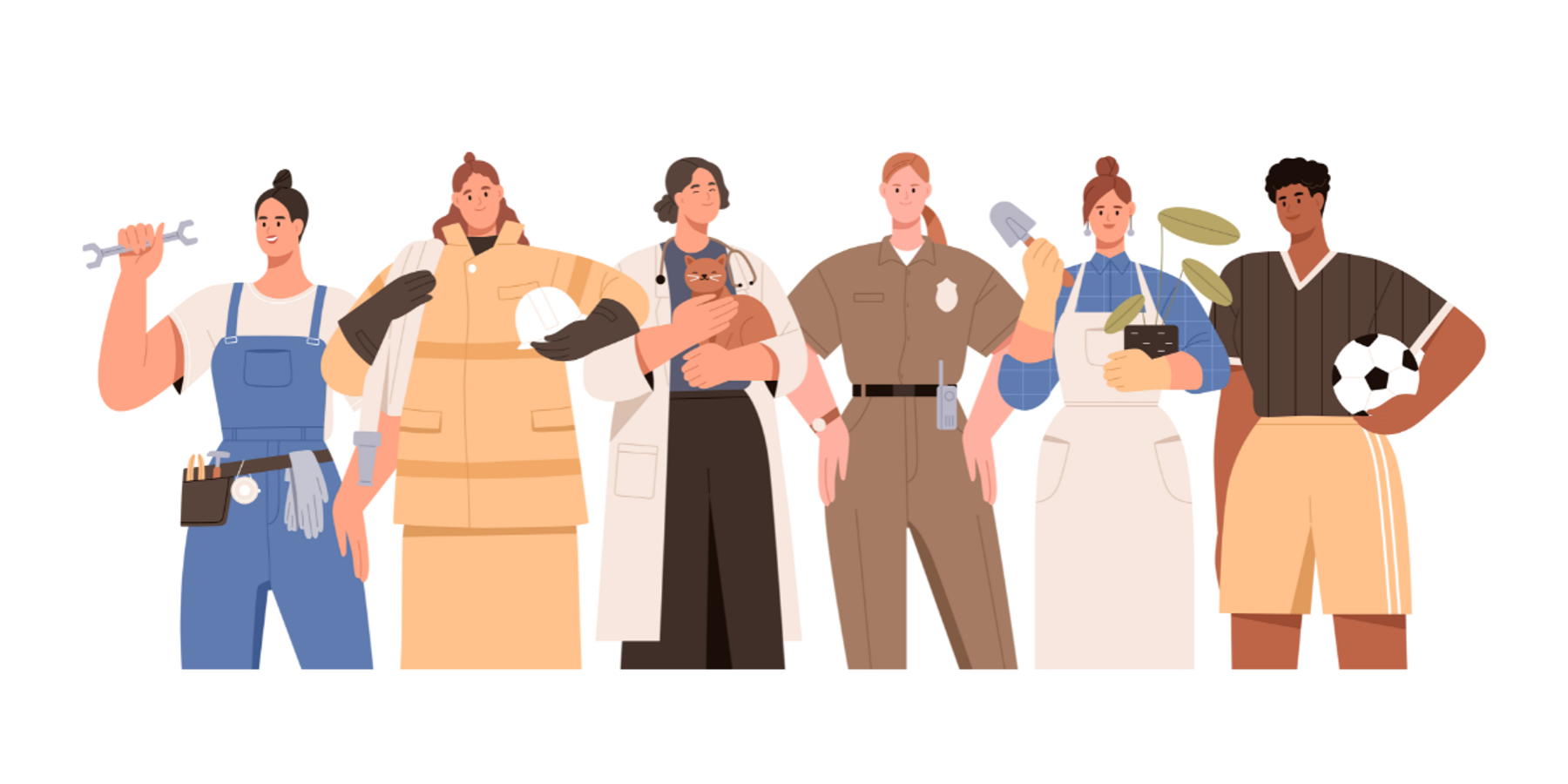Your resume (hopefully) has a section just for skills. Written there, probably in neat bullets, are all the things you know how to do. Now, if you were to look at the resumes of other applicants who have applied for that role, you would see a fair amount of overlap for the same skills. All web developers would highlight Javascript, HTML, or Git, testing, backend, and debugging on their resumes. Designers would highlight Adobe Photoshop and Illustrator. For the skills section, these resumes could pass for twins. In fact, most candidates who make it to the interview stage probably even have similar answers to the questions asked. In a skills-based economy, how do you differentiate your skill sets? How do you stand out? How do you sell yourself in an interview?
It may seem that the answer lies outside the skillset, that it has to be your previous employers’ reputation or your own work experience that will make the cut. While all that matters, recruiters are trending more towards hiring skilled talents over just experienced professionals. This means you have to learn how to sell yourself as a skilled, talented worker, and that requires interview skills.
How do you do that? You work on your skills story.
What is a skills story?
Simply put, we are no longer just focusing on where we worked and for how many years we have done this job; we are focusing on the “why hire me for this job?” narrative specifically. Focusing on the unique and dynamic ways you have applied those skills brings value to your employers in the past as well as strengthens your own portfolio.
So, while your resume can neatly list your skills, it’s you who has to connect those dots and convey a cohesive and relevant skill story to your recruiter.
Here’s how you create that skill story:
Show, don’t tell
This is a super well-established storytelling principle, so if we are looking to tell a great skills story, where better to start? The key principle here is to not say “reliable, trust-worthy, experienced, innovative," but instead, it is to put all those keywords into action and make a case for your experience.
How?
Let’s use a video editor, for example. Instead of saying that they are creative and they can use Adobe After Effects to give videos a creative edge, it’s a better story if the applicant came prepared with a quick 30-second video resume. Now, that’s creative! While everyone else’s resumes are on paper, this applicant has walked their talk every bit. That’s showing, not telling.
Skills needed for the job
The first step to creating a skills story is understanding that while it is YOUR skills story, it will change based on the recruiter and the job you are looking to get, even within the same industry or job class. You want to ensure that you read the job listing well and identify the specific skills your potential employer is looking for. A key skill most future employers need is attentiveness, so when you go in with a skills story that matches their criteria, you’re already showing and not just telling.
So, lesson number one on how to sell yourself in an interview? Go in super prepared for that specific interview! This is where it will serve you well to not rely on ready-made templates and scripts; be open to customizing depending on the business, the personality, and the job you want.
Keep it simple. Don’t ignore your keywords
Wait! Does that sound a bit conflicting?
A little, butttttttt to be successful, you’ll need to do both. An important aspect of good interview skills is good communication skills, so you want to be able to get your message across the table pretty easily. To do this, you want to be clear, concise, and confident.
However, that last “c” (confidence) is easier with insider knowledge and industry expertise. If you are a blockchain developer and don’t know what “nodes” mean, or are tempted to over-explain the Byzantine problem, you may either come across as someone who simply doesn’t know enough or worse, possibly condescending. So, while you want your conversation to seem grounded and easy, also prep some industry-relevant terms to throw in the mix.
Verb-ify
Any good story needs action. You cannot have a compelling story with a protagonist standing still; they have to go somewhere, do something.
So, get your skills moving. Verbify it all! Instead of saying that you have experience in social media management, it is better to say, “Handled social media accounts for XYZ” or “grew the reach of the ABC Instagram page from 2,000 to 200,000 in less than six months." The idea is to lead with actual results. How do you sell yourself in an interview? Sell something of value. A skill that lies passively on your resume doesn’t help your skills story, but a skill that has been tried and tested and triumphed will!
Transferable skills
Are you ready to lead with the skills that your recruiter is looking for? Good! But…so is everybody else. How do you sell yourself in this case? You throw in some extra sugar! Let’s talk about some transferable skills.
These are skills that aren't limited to an industry or a job but that have relevance across niches. For instance, project/team management, being able to use AI tools, proficiency in different languages — these are all skills that can cut through the competition and make you stand out. So, don’t keep your achievements and transferable skills hidden away at the bottom of the page; ideally, they should be sprinkled within your resume to highlight their importance while also adding more value to your primary skills.
Honesty and humility
This could easily have been number one on our list of interview skills. 70% candidates lie on their resumes and 75% employers can actually catch the lie. That must get awkward (and embarrassing for the applicant)!
You’ll probably want to avoid that, and more importantly, you also want to make sure you are transparent and friendly. This sets the right expectation from the get, and you’d be surprised how eager most companies are to work with someone who admits that they could always improve and is willing to learn. Lifelong learners win in the long run!
Don’t be afraid to show some personality.
So at the end of the day, how do you sell yourself in an interview? Be…yourself!
A great way to stand out is to bring out your passion. While it is perhaps more conventional to approach interviews in a formal fashion, enthusiasm is also what can set you apart. If instead of saying that you're passionate about copywriting, you wrote, “Ever since I wrote my first poem in the 2nd grade, I knew I had to write more...and get better. That poem sucked!”
You’d hopefully get a hearty chuckle, and it could be a good icebreaker, but more importantly, it takes confidence and acceptance to put your vulnerabilities out there. Recruiters want to know the real person behind the resume, and it can help both of you figure out if that company is a good culture fit, too!
The only caveat is not losing sight of the boundaries of professionalism and appropriate behavior.
Tell your skills story
That’s it, folks, that’s how you make your own skills story. If you didn’t have one before, now is a good time to create one and tell your journey so far in a brand-new, compelling way. Looking for some more tips? Head right here.
If you need help understanding your skillset first, you might want to do a quick skills audit. This will help you know your competencies, what the current market requirements are, and how to go about bridging that gap. PowerToFly is here to help you do that with a simple click with our SkillMeter.









